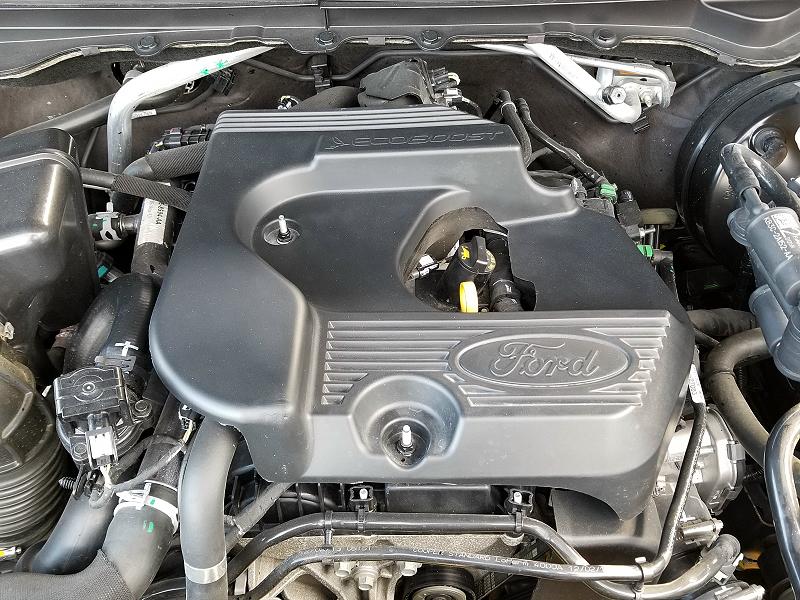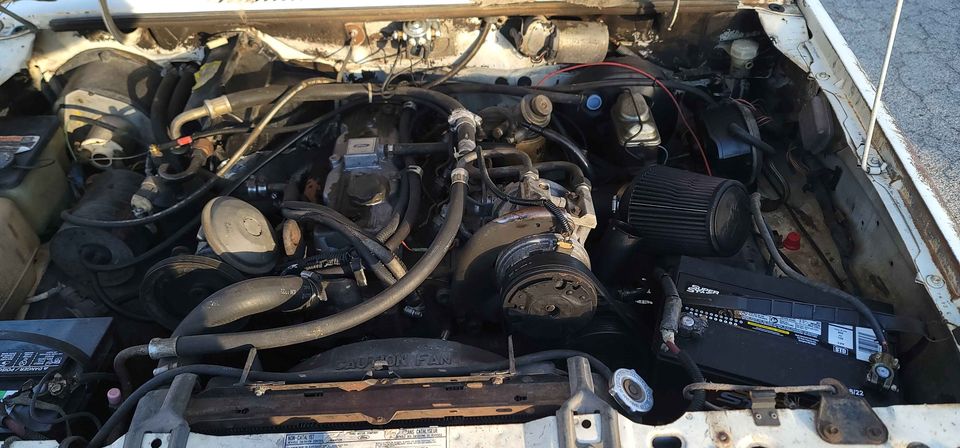The 2.2 Ford Ranger Engine: Ideal for Towing, Off-Roading, and Everyday Use
The 2.2 Ford Ranger Engine: Ideal for Towing, Off-Roading, and Everyday Use
Blog Article
Just How to Choose the Right Vehicle Engine for Optimum Efficiency and Performance
Choosing the appropriate auto engine to achieve an optimum equilibrium of performance and effectiveness requires a nuanced understanding of numerous engine types and their details features (2.2 ford ranger engine). Elements such as engine variation, the number of cyndrical tubes, and fuel kind play a pivotal role in establishing both power output and gas economic climate.
Comprehending Engine Types
When choosing a cars and truck, among the most vital components to take into consideration is the engine kind, which works as the heart of the car. The engine type dramatically influences the cars and truck's general efficiency, longevity, and suitability for your driving demands. There are largely 3 engine types to take into consideration: internal burning engines (ICE), hybrid engines, and electrical engines.
Inner burning engines stay one of the most common, operating fuel or diesel. They are recognized for their power and velocity, making them suitable for performance-oriented lorries. They might fall short in fuel efficiency and ecological impact.
Hybrid engines integrate an internal burning engine with an electric motor, offering an equilibrium between efficiency and gas economy. They are increasingly preferred for motorists seeking minimized exhausts while still delivering ample power.
Electric engines, powered entirely by batteries, are gaining traction due to their environmental benefits and lower running prices. They provide instantaneous torque and a silent driving experience, making them ideal for city travelling.

Efficiency vs. Efficiency
Picking the ideal engine kind involves considering the compromises between performance and performance. Performance usually describes just how well an engine can supply power and acceleration, which is commonly related to bigger variation engines or those with turbocharging abilities. These engines usually provide electrifying driving experiences and quick action times, making them prominent amongst enthusiasts.
On the various other hand, effectiveness concentrates on fuel economy and lower exhausts. Smaller engines, especially those equipped with innovative technologies such as direct gas shot and variable shutoff timing, tend to supply far better miles per gallon and decreased carbon impacts. While these engines may sacrifice some power compared to their larger counterparts, they often master daily driving circumstances where high efficiency is not always essential.
Ultimately, the option between efficiency and efficiency depend upon individual top priorities. A driver who values perky driving could prioritize a high-performance engine, while someone seeking cost-efficient commuting may favor an effective choice. Understanding these compromises is critical for making an informed decision that straightens with your driving demands and lifestyle, ensuring that the picked engine kind matches your expectations for both efficiency and performance.
Secret Requirements to Consider
Recognizing essential specifications is essential for making a notified decision about the best vehicle engine. When selecting an engine, several important variables require consideration to make certain ideal performance and effectiveness.
It suggests the complete quantity of the engine's cyndrical tubes and normally correlates with power result; larger variations typically generate even more power. Engines with even more cyndrical tubes can supply smoother procedure and greater power, while smaller arrangements can boost gas efficiency.
In addition, the engine's arrangement, whether inline, V-type, or rotary, click reference influences the total layout and efficiency features of the car - 2.2 ford ranger engine. Turbocharging and supercharging technologies ought to also be evaluated; these boost an engine's power output without dramatically raising its dimension, hence boosting efficiency
Gas type is another crucial factor to consider, as it impacts both efficiency and prices. The engine's compression proportion impacts efficiency and power distribution; a higher proportion usually leads to better efficiency, but may require superior fuel. By very carefully evaluating these requirements, you can pick an engine that lines up with your efficiency and effectiveness goals.
Reviewing Driving Requirements
Evaluating driving requirements is an essential action in determining the best auto engine for your way of life and usage patterns. Begin by evaluating your day-to-day driving behaviors, including the frequency and period of trips. If your driving largely contains brief commutes in urban environments, a smaller sized engine with great gas efficiency may be sufficient. Alternatively, if you frequently undertake long-distance trips or require towing capacities, a more powerful engine may be required.
Consider the terrain you typically browse. Hilly or sturdy landscapes may require an engine with greater torque for much better performance. In addition, assess passenger and cargo needs; bigger family members or those who transfer products may benefit from cars with raised power and ability.
Diesel engines often supply exceptional torque and fuel economic climate for larger automobiles, while gasoline engines may supply a smoother and quieter trip. Factor in ecological considerations, as crossbreed or electrical engines can provide an extra sustainable alternative without sacrificing performance.
Future Patterns in Engine Technology
As the automotive sector proceeds to evolve, advancements in engine modern technology are leading the way for much more lasting and effective driving experiences. One significant pattern is the change towards electrification, with crossbreed and fully electric powertrains gaining prominence. Car manufacturers are spending heavily in battery innovation to enhance power density and lower billing times, inevitably enhancing the practicality of electric vehicles (EVs)
One more arising trend is the advancement of hydrogen gas cell engines. 2.2 ford ranger engine. These systems use the potential Resources for zero-emission driving while giving refueling times similar to typical fuel engines. Furthermore, advancements in combustion modern technology, such as variable compression proportions and boosted turbocharging, are enhancing traditional inner burning engines for far better performance and efficiency
Digital combination is also a crucial element of future engine modern technology. The implementation of expert system and artificial intelligence enables real-time data evaluation, making it possible for smarter engine management systems that adjust to driving conditions and improve gas effectiveness.

Final Thought
Finally, choosing Going Here the suitable cars and truck engine requires an extensive assessment of different elements, including engine type, efficiency demands, and performance objectives. By recognizing the differences between various engine kinds and considering vital requirements, people can straighten their options with details driving requirements. As improvements in engine technology continue to emerge, remaining notified regarding future fads will certainly further boost decision-making, eventually bring about a vehicle that balances performance and fuel performance effectively.
Selecting the appropriate auto engine to achieve an optimal balance of efficiency and effectiveness requires a nuanced understanding of different engine types and their specific attributes. There are mainly three engine kinds to think about: internal burning engines (ICE), hybrid engines, and electrical engines.
Performance generally refers to how well an engine can supply power and acceleration, which is often associated with bigger displacement engines or those with turbocharging capabilities. Diesel engines often offer exceptional torque and gas economic situation for larger vehicles, while gasoline engines may offer a smoother and quieter trip.In verdict, selecting the proper vehicle engine demands a detailed examination of various factors, consisting of engine type, performance demands, and effectiveness goals.
Report this page